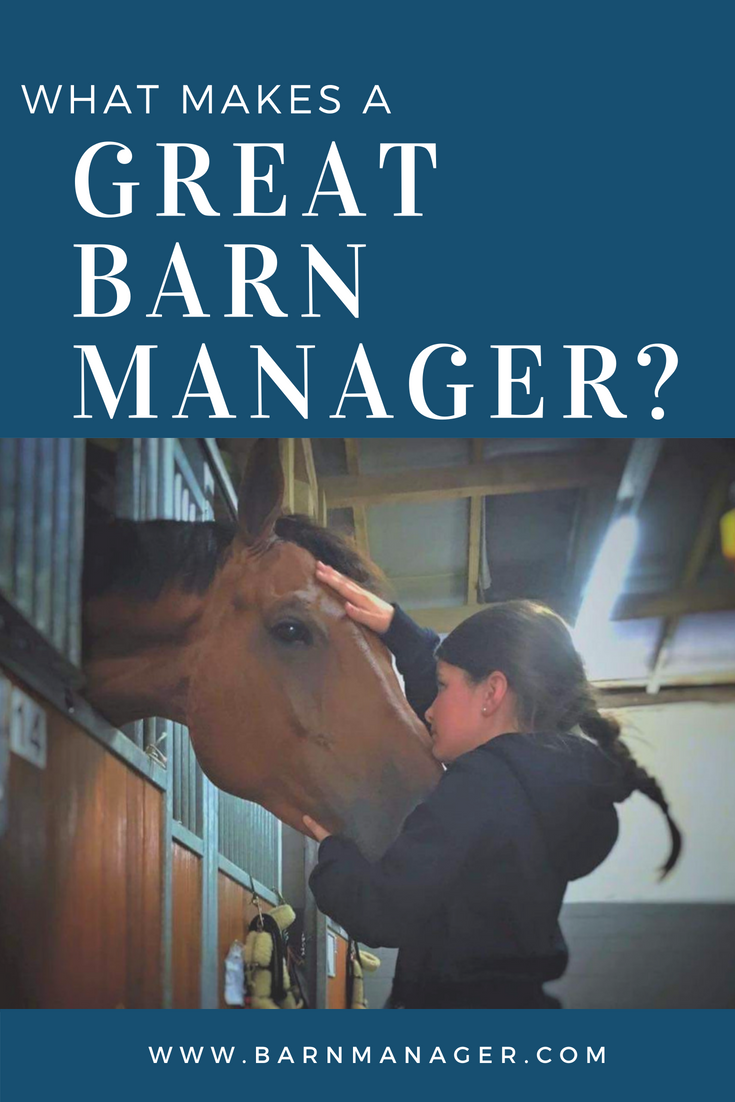Our BarnManager team recently caught up with some of the best hunter barn managers in the business to learn their tips and tricks, and now we’re back with more insight from two women working hard in the saddle and behind the scenes to help their hunter operations run smoothly!
Meet This Week’s Managers

Karli Postel – Karli Postel rides and assistant trains for Archie Cox at Brookway Stables in California.

Cara Meade – Cara Meade manages for John and Stephanie Ingram, LLC, based out of Tennessee.
Q: What is one thing that you or your horses never go to the ring without?
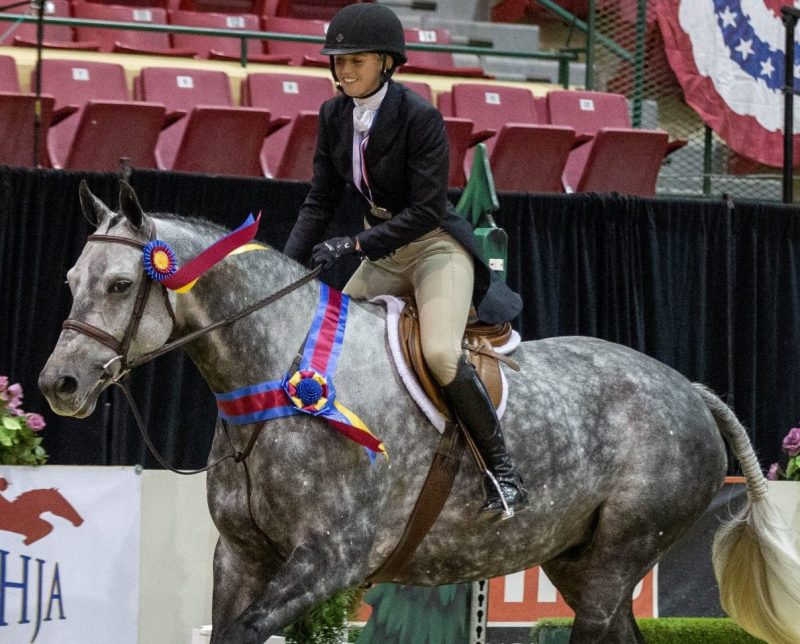
Karli: The grooms never come without a backpack, and in the backpack there are back boots, hoof oil, brushes, hoof pick, and rags; they always have a whip in the backpack. They always have a little bit of boot polish in the backpack. Show Sheen, rubbing alcohol, and fly spray. The backpacks are heavy!
Cara: A towel. There are so many uses for a towel at the ring. Horses always need to be dusted off—legs, belly, sweat marks, green mouth, tack—and your rider’s boots can always have one last wipe-down. It can also be used on the jump or ground as a way to prep a spooky horse.
Q: What’s the biggest challenge of the job?
Karli: Orchestrating timing is probably the hardest, just because of the nature of our industry. Nothing generally runs specific to the laid-out time schedule, so you have to make your schedule but then be flexible within it. You have be able to recognize “Okay well this ring is running a little bit faster, and this ring is running a little bit slower,” so it’s going to work out a little differently than I had accounted for originally. I think if you’re not good at time management and you can’t be flexible within a schedule that you make, you’re going to have a hard time because you might get flustered.
Cara: Communication! Whether it’s with someone who speaks a different language or just simply how someone else translates the task, idea, or information you are trying to explain. Clear and consistent communication between all parties is always a good challenge.
Q: What’s your biggest time-saving trick in the barn?
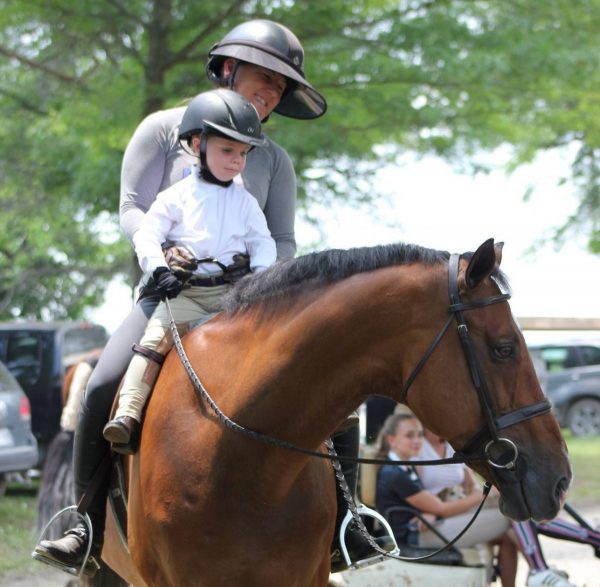
Karli: Using your resources and using your network. I see it all the time where people are at one ring and they’re like, “Well I need to check on the other ring, so I need to walkover there.” You have the resource of the gate guy. Go and ask him to radio over. He won’t mind as long as you aren’t rude and you wait until he has a convenient moment to do it; you’re saving yourself the trip. When we go to HITS Thermal where there are seven hunter rings, four jumper rings, and the barn is way far away, those 10 minutes that it takes you to walk from one ring to another are valuable. So I say definitely you need to use your resources. Sometimes getting the gate guy’s phone number is helpful. If you’re in the warm-up ring and can’t hear the count, it’s nice to be able to reach out to them personally.
I also like to keep my schedule on my phone so that I always have it on me, and I try to make sure that everyone has a schedule. Archie [Cox], myself, and then our head guy Carlos, just so that all three of us have an idea of what’s happening.
Cara: My time-saving trick is organization. I’m not naturally the most organized person, so the more organized I can be with all of the supplies I use each day, my thoughts, and the order of how tasks get done makes a big difference in how long the days take to get finished.
Q: What’s the most rewarding part of your job?
Karli: It’s so fun when you get to the weekend, and the clients come. You had your whole week and feel like you’ve done all the prep.When they go in and they have success, and they come out and they’re happy, that’s the most rewarding for me. Especially when it’s kid; I love the amateurs, but with the kids it’s really rewarding because you can really see it on their face when they’re so excited about winning. Even if they just went in and had a really good round, when they ride well it’s exciting!
Cara: The most rewarding part is seeing the horses perform well. There is SO much effort and detail that goes into getting each horse prepared exactly right to go to the ring. To see all of that effort pay off for horse and rider is definitely the most rewarding part.
Q: What’s your best grooming tip? And what five things do you use most in the barn?
Cara: My best grooming tip is to be organized as best you can. The more readily you can have all your grooming necessities and tack available the easier it will be to work quickly and efficiently.
I definitely use the dry-erase board; I wouldn’t make it through the day without it. A towel and some Pledge; there is never something that doesn’t need dusting. Scissors or a pocket knife, sunscreen, and tack soap.
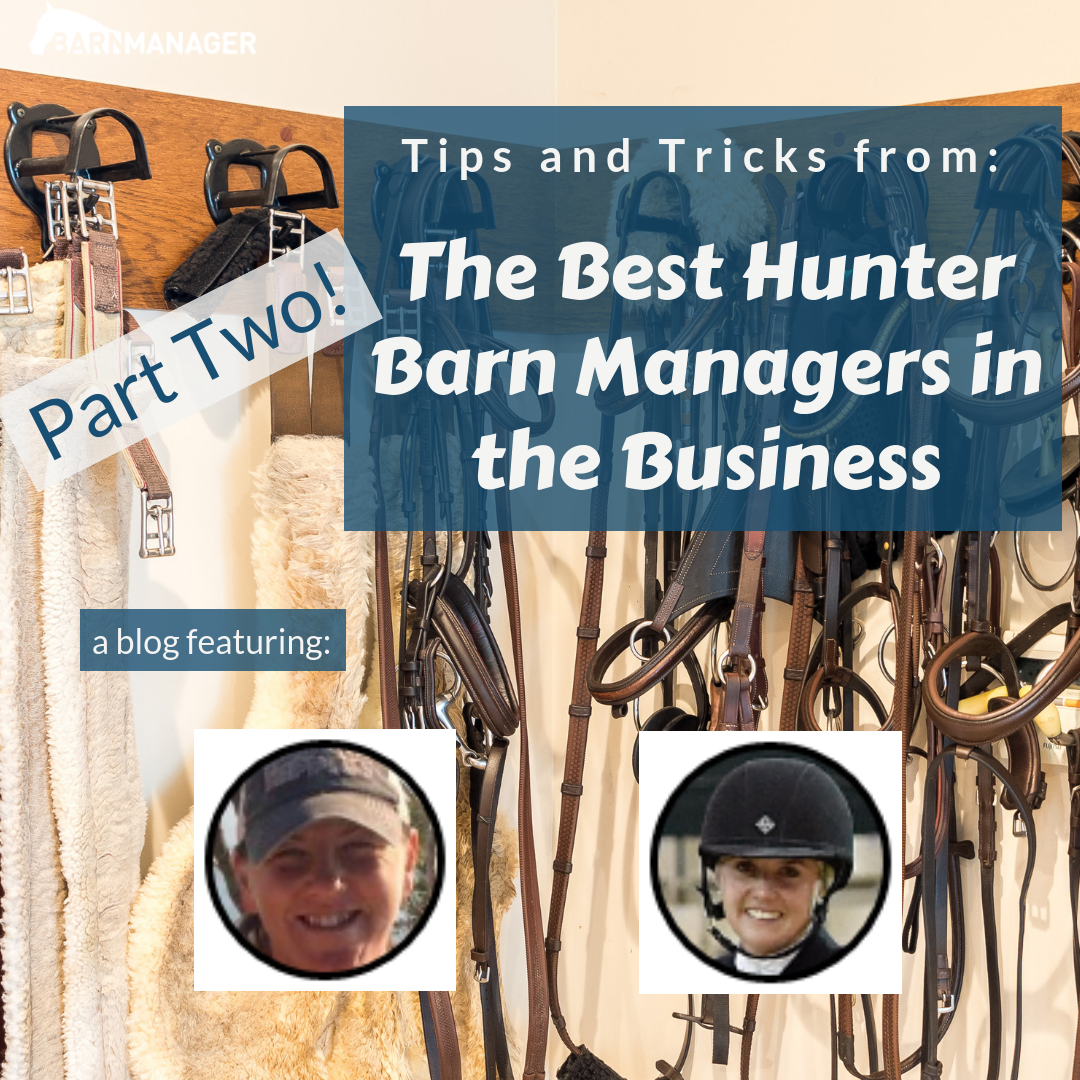
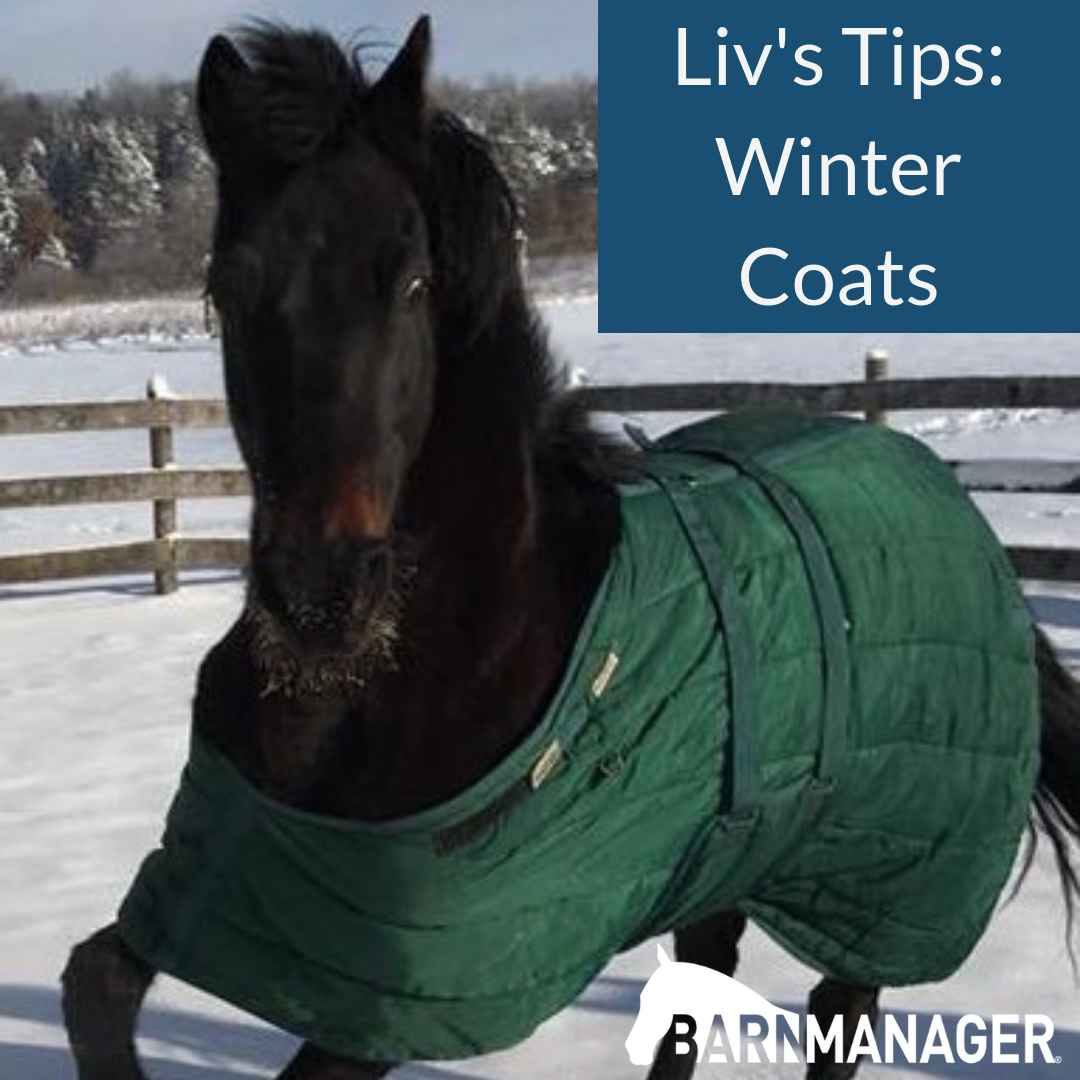
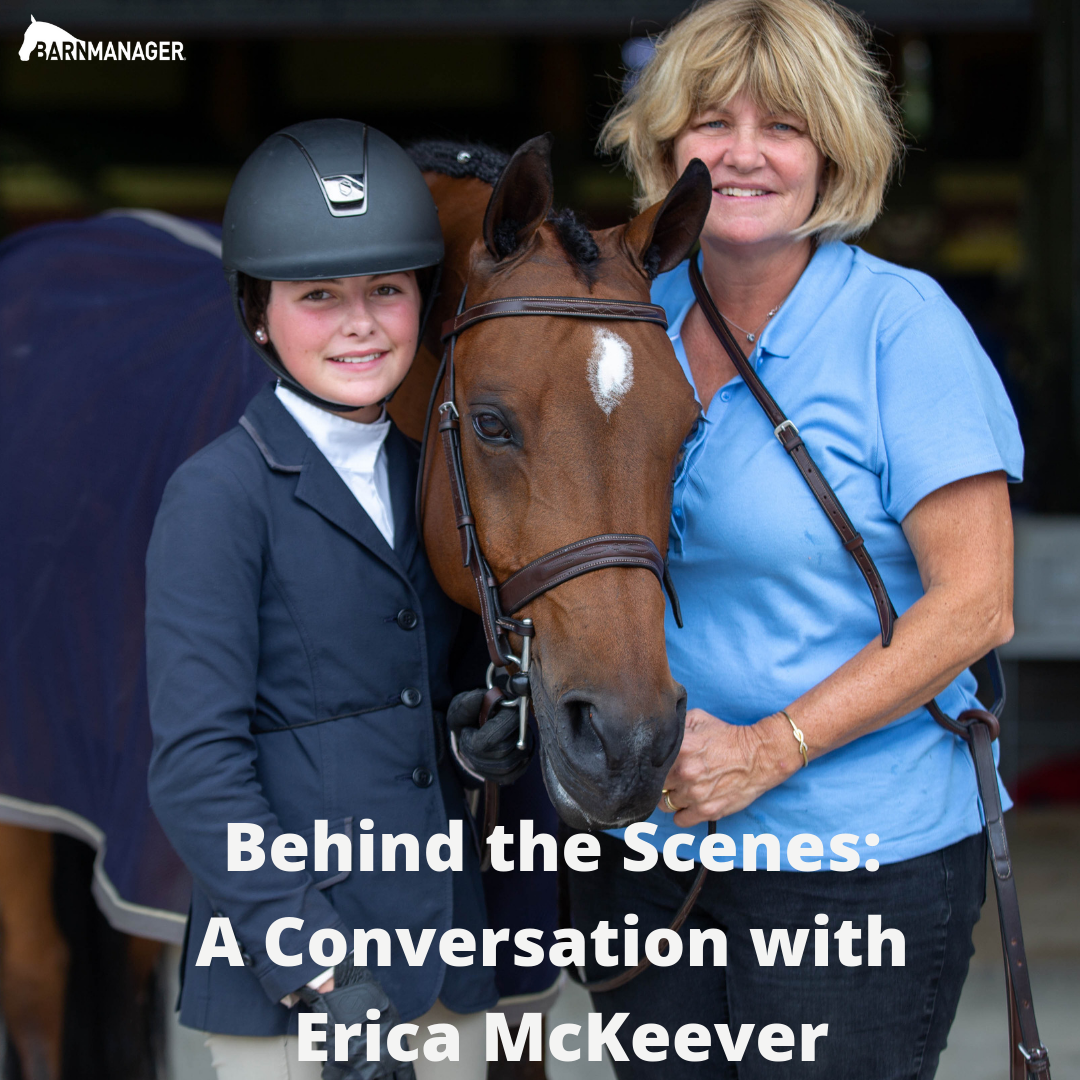

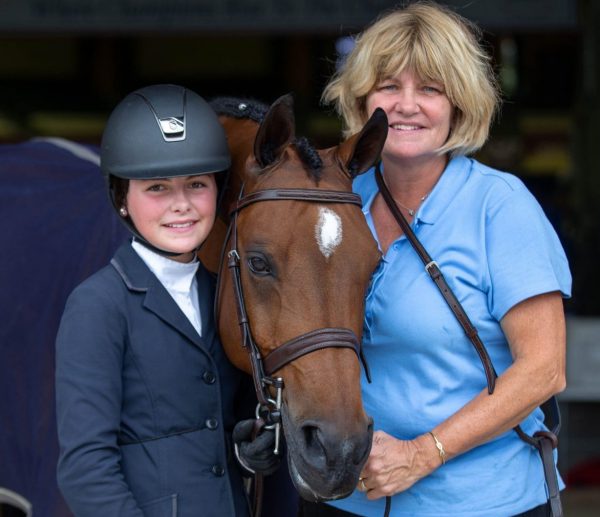
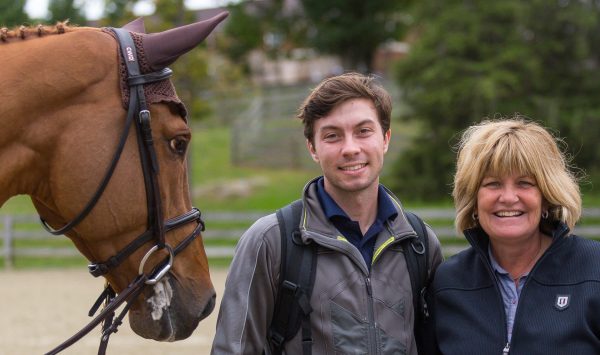
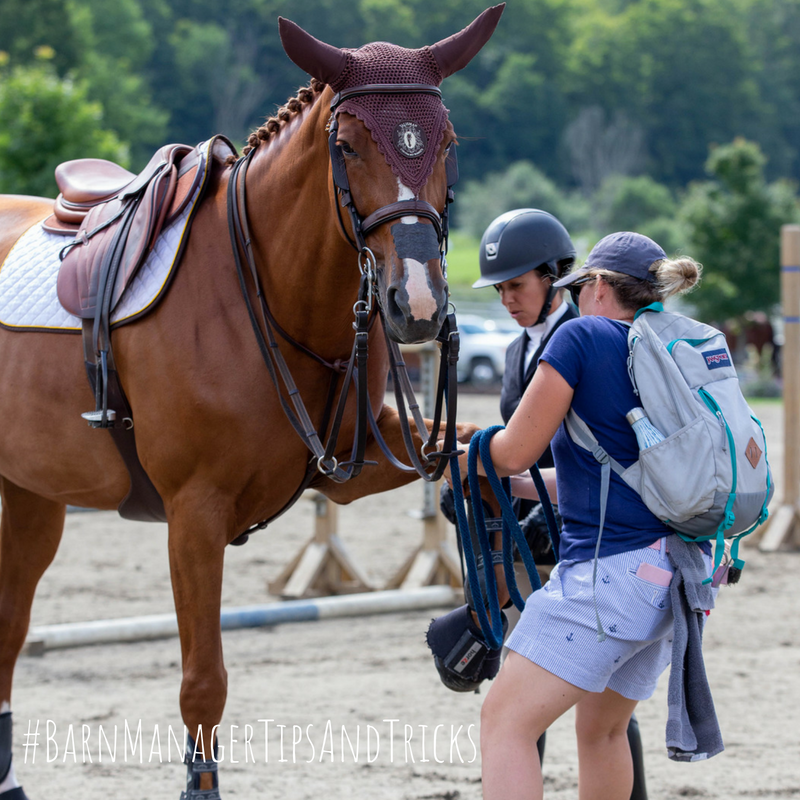



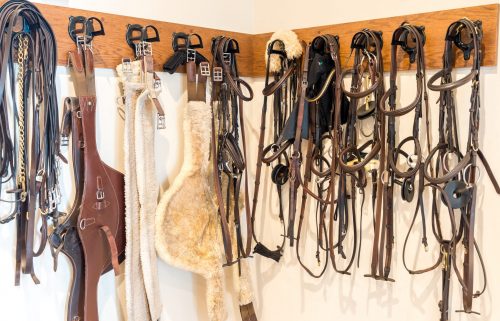
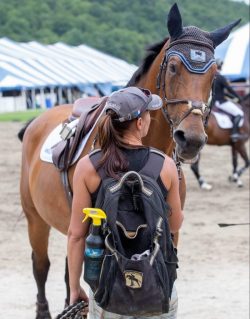
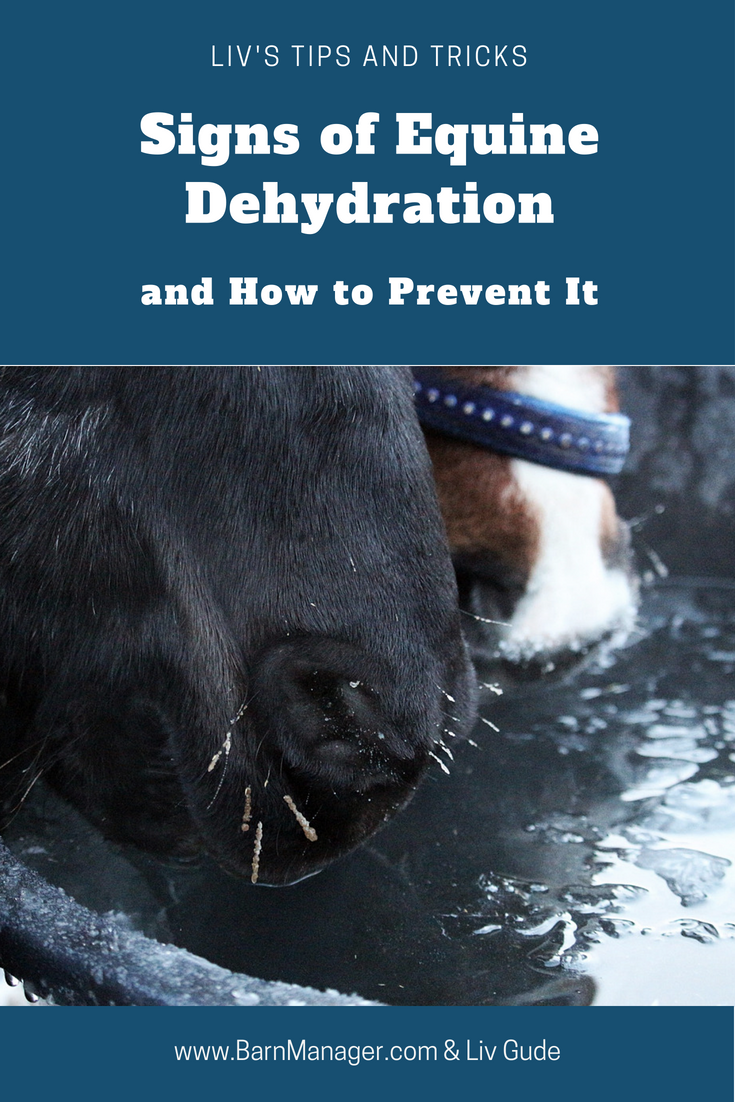
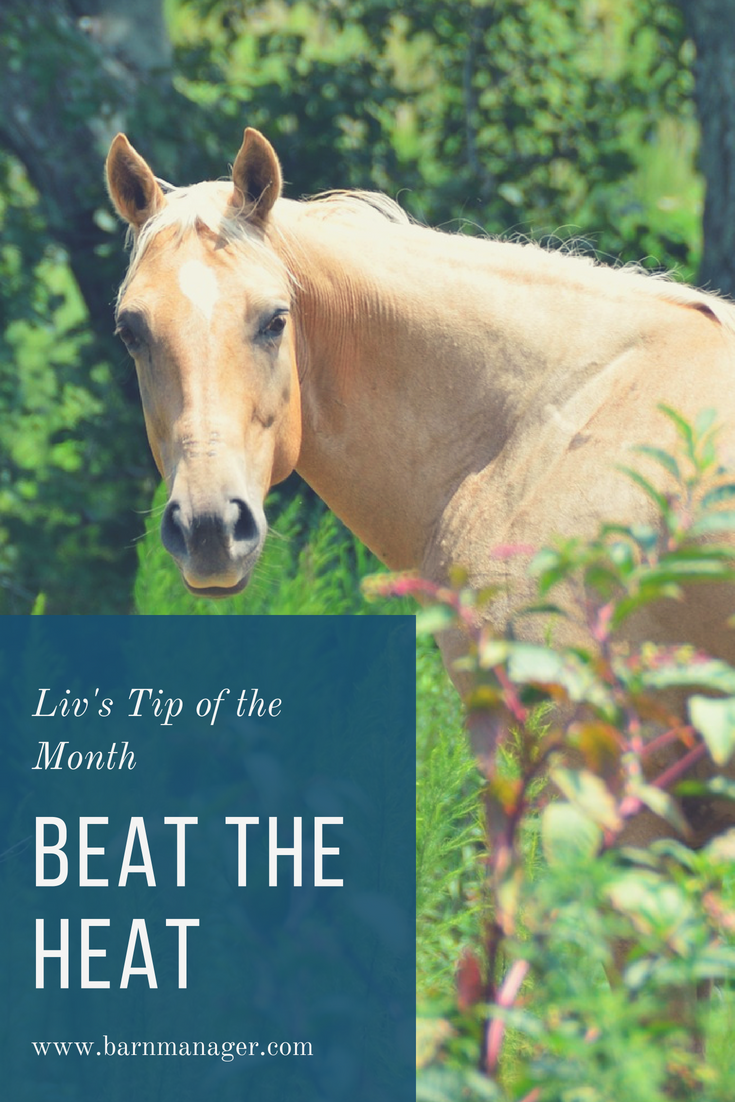
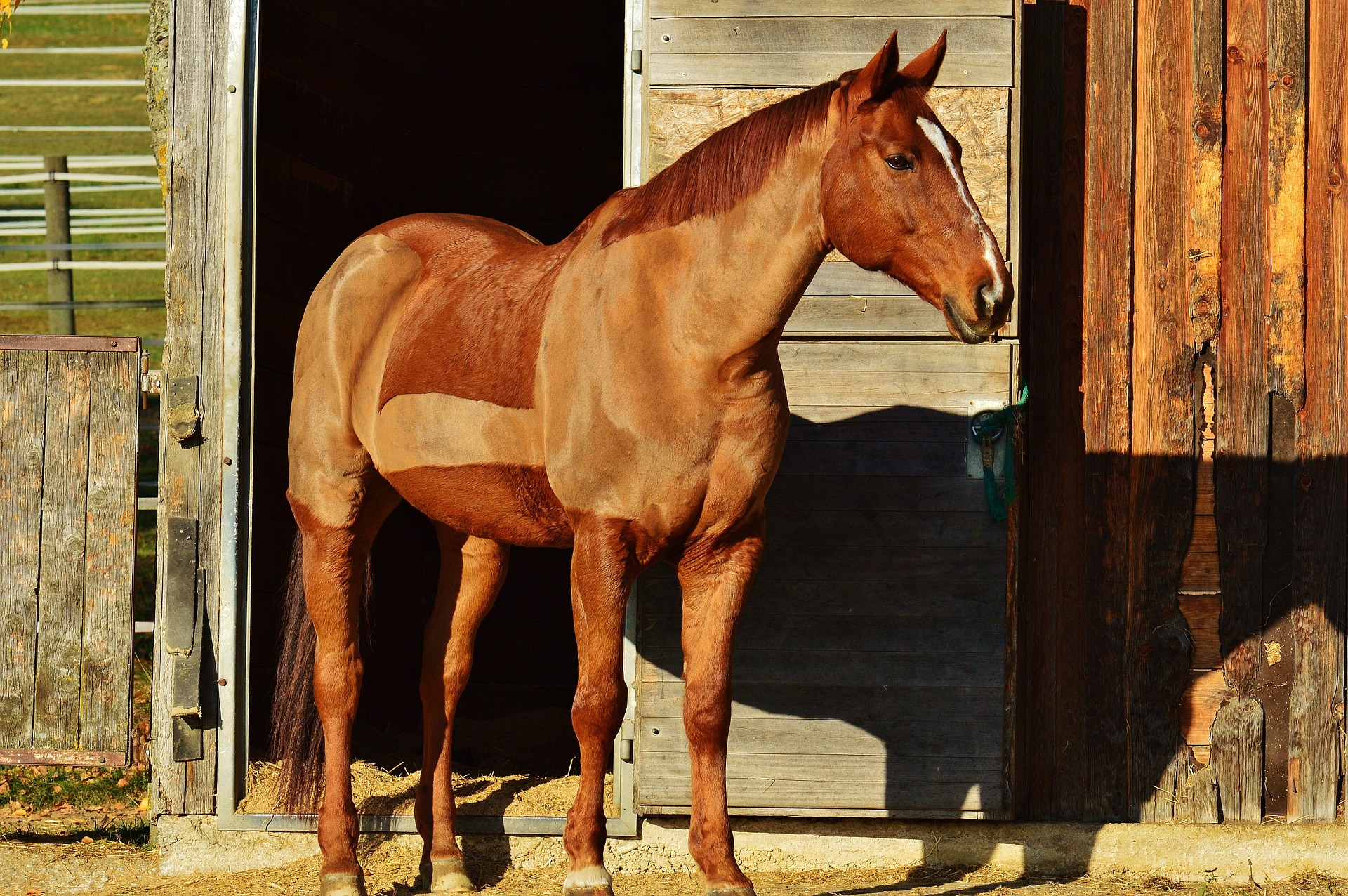
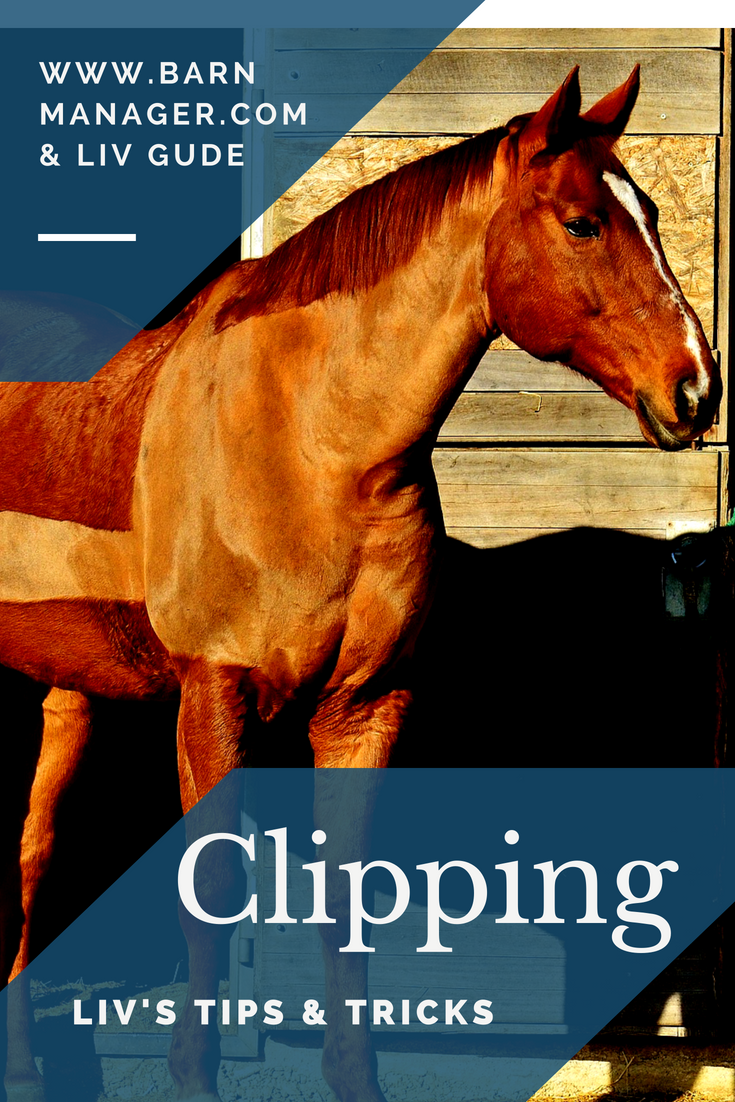
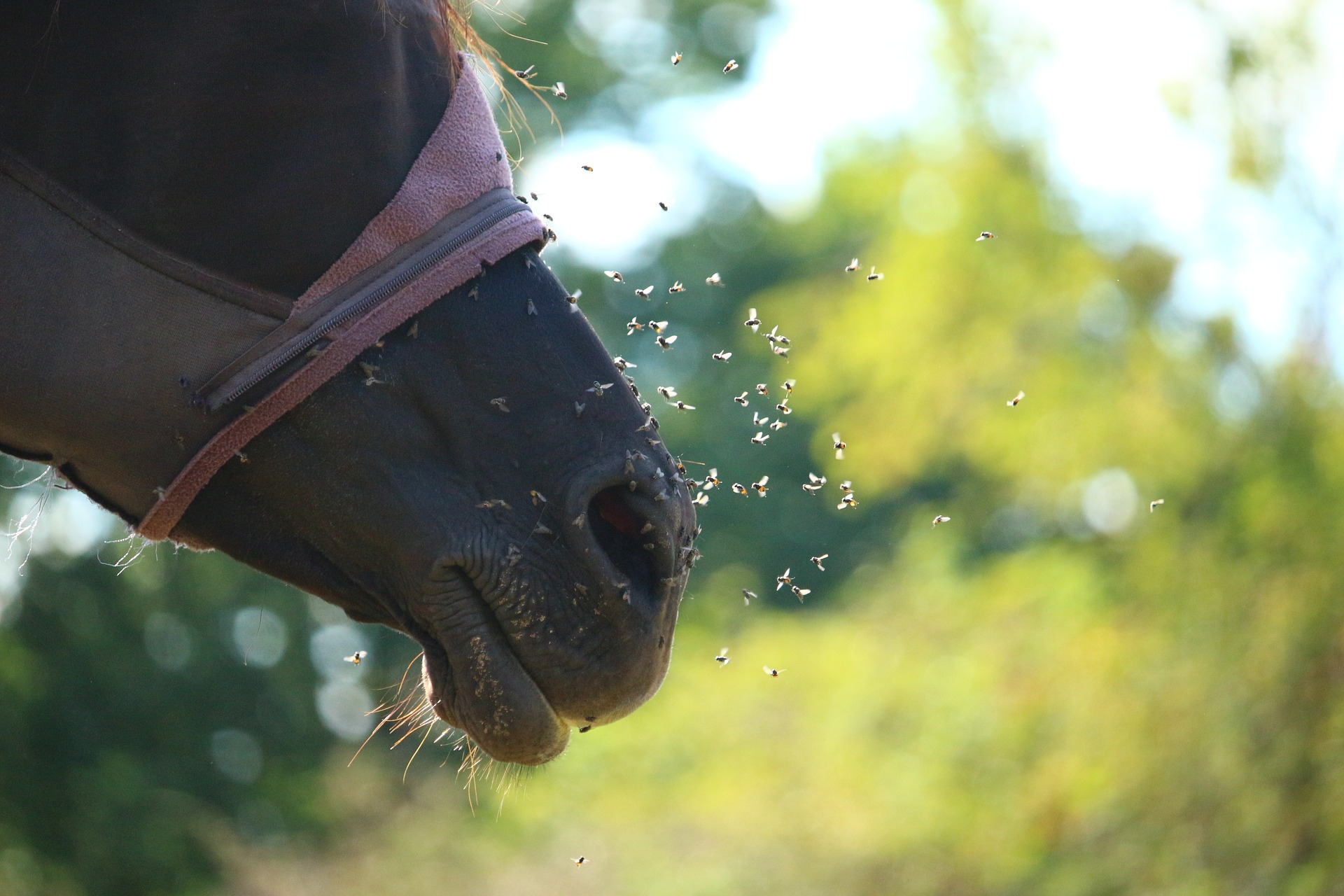
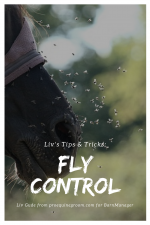 There are two main things to know about fly control – first, know what types of flies you are targeting and second, you must attack all stages of the fly life cycle.
There are two main things to know about fly control – first, know what types of flies you are targeting and second, you must attack all stages of the fly life cycle.